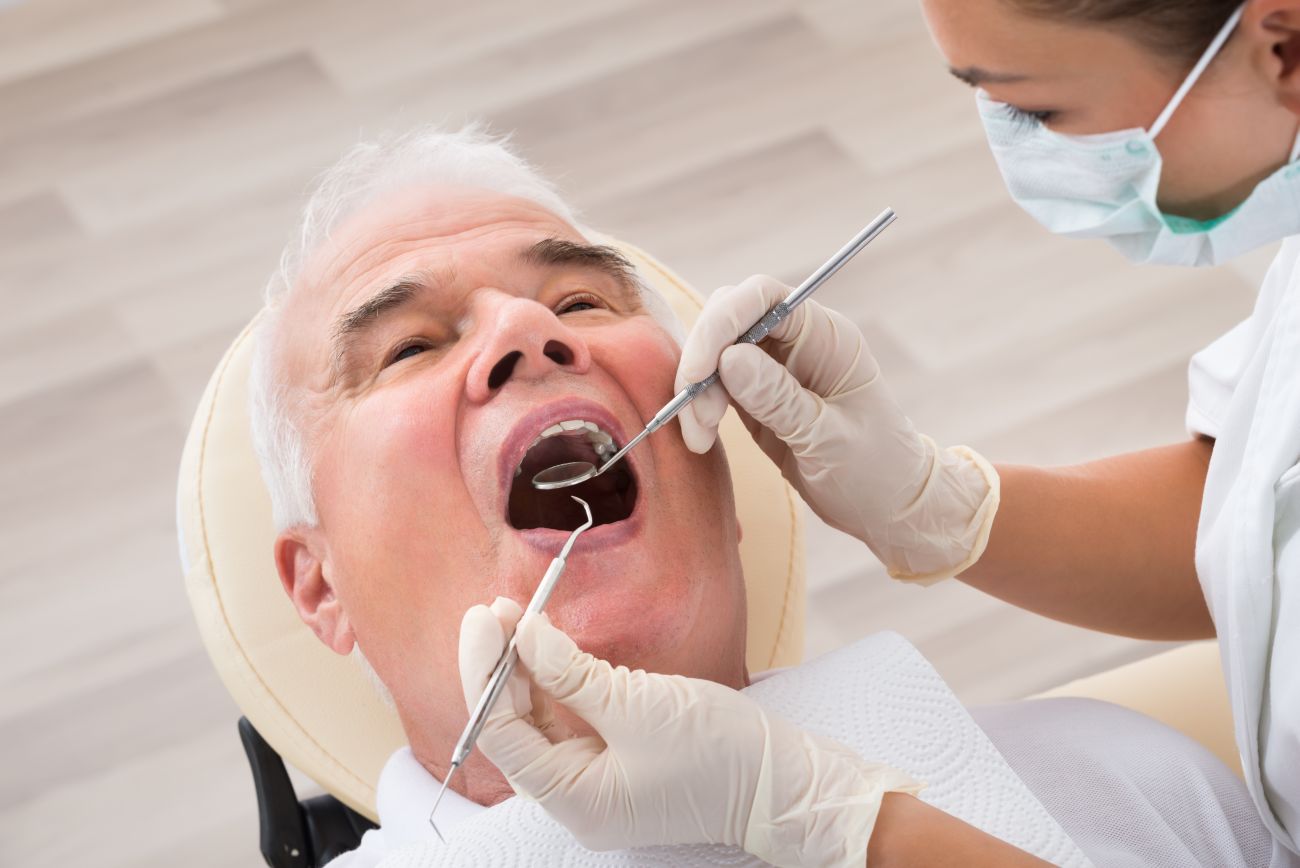As people begin to enter their golden years, they’ll likely find that affordable dental care can be tough to come by. Even relatively routine dental procedures can be expensive and anything beyond a basic cleaning is likely to cost into the hundreds of dollars.
Despite how expensive dentist visits can get, it’s beneficial for seniors to go see the dentist regularly. Going to the dentist regularly after the age of 65 will prevent cavities from forming and catch small dental issues before they balloon into larger ones.
Medicare Advantage and Medigap Plans
In general, most Medicare Advantage plans include dental coverage that is much more comprehensive than the Original Medicare options. In fact, Medicare Advantage plans are plans that are offered up by private insurance companies. These companies are required to provide coverage for the emergency dental procedures mandated by Original Medicare. However, many of these plans are also likely to extend the coverage to more routine procedures, which might include:
- X-rays and diagnostic services;
- Oral examinations;
- Routine teeth cleanings;
- Extractions;
- Periodontics, and;
- Crowns, dentures, and bridges.
Some Medicare Advantage plans might place a limit on certain procedures. For example, a specific plan may only allow for one teeth cleaning every six months, which is what is recommended by most dentists.
For instance, as an enrollee, you are likely to pay a $50 copayment on each visit. If you choose a dental plan with more comprehensive coverage, you can expect to pay a higher premium each month. Plans will likely cap your yearly dental coverage at $1,000 or some other arbitrary figure, so always look closely at annual limits when you are shopping around.
Medigap plans are private plans that act as supplements and cover many of the same procedures as Medicare Advantage plans. In general, Medigap plans have higher premiums but lower overall out-of-pocket costs. For example, if you expect to visit the dentist for extensive reconstruction work, a Medigap supplementary plan may save you significant amounts of money in the long run.
Regular Dental Insurance
Regular dental insurance plans can vary widely in cost and scope. In general, you will want the freedom to choose your own dentist. Most reputable plans will take a three-pronged approach so they will cover preventive, diagnostic, and emergency services. Direct Reimbursement plans generally reimburse patients a certain percentage of the total cost. Coverage is usually comprehensive, and no coverage types are excluded. This allows patients to work with their chosen dentist to establish excellent preventive care in order to keep costs down.
Other plans use tables that link specific dental procedures to a fixed dollar amount. The insurance company will pay the corresponding fixed dollar amount for the procedure. This means that if the dentist charges a higher fee, the patient will make up the difference out of pocket. These particular plans are known as Schedule of Allowance programs.
Capitation programs work in a different manner. These programs pay a certain amount of money each month per patient to contracted dental professionals. Dentists are then required to offer certain types of treatment for no cost. Certain procedures, like dental implants and dentures, will require a copayment. Because implants and dentures can generally run into the thousands of dollars, a small $20 or $30 copayment is still an ideal way to cut costs on more complicated dental work.
Dental Savings Plans
Dental savings plans act as a buyer’s club for your teeth. These discount plans can save seniors from 10 percent to 60 percent on their total dental costs. Plan users will essentially be paying periodic fees for a range of handsome benefits, including the following:
- No maximum spending limits;
- Near-immediate activation, usually within 72 hours;
- No insurance authorizations or approvals;
- Access to a large network of dentists;
- Help with restorative care and cosmetic treatments, and;
- Access to endodontists, orthodontists, and prosthodontists.
Conclusion
Seniors ultimately have a wide range of options when it comes to dental care. Whether they get coverage through a Medicare Advantage plan, regular dental insurance, or a dental savings plan, they can choose a set-up that will serve their smiles well for many more years.
